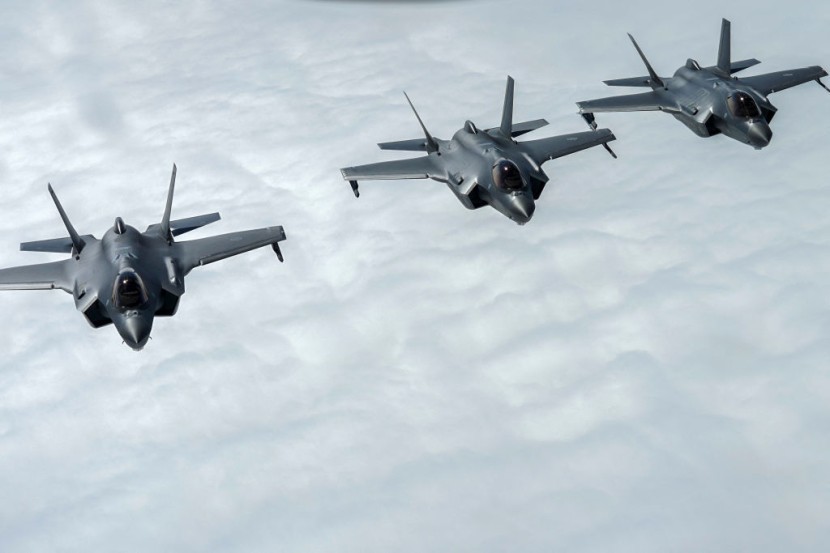
The US State Department today approved the prospective transfer of 24 F-35 Joint Strike Fighters manufactured by Lockheed Martin as well as a vast array of weapons, parts, and
The 24 aircraft will be of the CTOL (Conventional Take Off and Landing) variety, also known as F-35As, which the United States Air Force primarily deploys.
Czech Republic Buys US F35 Fighter Jets
The Czech Republic made its F-35 ambitions known a year ago when it proclaimed its preference for the fifth-generation American aircraft over the F-16 or the Gripen fighter manufactured by Saab. Currently, the Czech air force operates Gripens, as per Breaking Defense.
The prospective agreement disclosed today also includes a variety of missiles, bombs, electronic warfare, radio capabilities, "classified software," and software development. Also included in the transaction are 25 Pratt & Whitney F135-PW-100 engines.
Today, the State Department reported that the deal's ultimate cost would likely be less than $5.6 billion, "depending on final requirements, budget authority, and signed sales agreement(s), if and when they are consummated." It is also conceivable, albeit unlikely, that the US Congress will oppose the agreement.
If the transaction is finalized, the Czech Republic will join nine other foreign military purchasers and seven foreign "partners" of the United States in the F-35 program. The State Department approved the transfer of small-diameter explosives for use on the Norwegian F-35 jet just one day prior to this announcement.
According to Reuters, the primary contractors are Lockheed Martin, Raytheon, and Boeing. The Czech government announced its intention to purchase 24 F-35 aircraft to replace Gripen fighters leased from Saab AB in Sweden.
The package also includes a spare engine, 70 AIM-120C-8 Advanced Medium Range Air-to-Air Missiles (AMRAAMs), assorted munitions, support equipment, spares, and technical support, according to the Pentagon. The notification does not indicate that a contract has been signed or that negotiations have concluded, despite State Department approval.
Next Generation Fighter Jets
Despite their immense wealth and a decades-long history of purchasing advanced fighter aircraft from the United States, none of the Arab Gulf states have acquired fifth-generation stealth fighters manufactured in the United States.
If they are unable to acquire the American-made F-35, they may pursue other fifth-generation fighters or join a multinational effort to develop one; however, technical and political obstacles may make their quest for stealth aircraft lengthy.
Saudi Arabia, the United Arab Emirates, and Qatar, the leading and wealthiest Arab Gulf states, and three of the United States' top 10 arms customers have each requested to purchase the F-35. During the past three decades, these three countries have purchased numerous advanced F-15 and F-16 variants.
However, Washington has only expressed willingness to sell them F-35s under specific conditions. After establishing diplomatic relations with Israel under the Abraham Accords, the UAE reached a historic agreement for 50 F-35s and 18 MQ-9 Reaper drones in January 2021 for a staggering $23 billion.
However, Abu Dhabi suspended negotiations in December of the following year, citing what an Emirati official termed onerous conditions imposed to safeguard American technology from Chinese espionage. It is unclear whether negotiations will resume in the near future, as per Insider.
In exchange for potentially establishing official ties with Israel, Saudi Arabia has also requested various concessions from the United States, such as fewer restrictions on arms sales. It is unclear, however, whether the Saudis desire F-35s as part of this proposed arrangement.
It is unlikely that the United States would sell F-35s to Saudi Arabia or Qatar if they did not join the Abraham Accords or a similar normalization initiative in the future. This leaves the Gulf states with various non-American options that do not appear auspicious, at least in the near future.
The Kingdom of Saudi Arabia announced on March 1 that it would join the Future Air Capabilities System program, which is developing a six-generation fighter aircraft dubbed the Tempest.
The United Kingdom released a statement clarifying that its cooperation with Saudi Arabia was "distinct" from British multinational efforts to develop combatants of the next generation.








